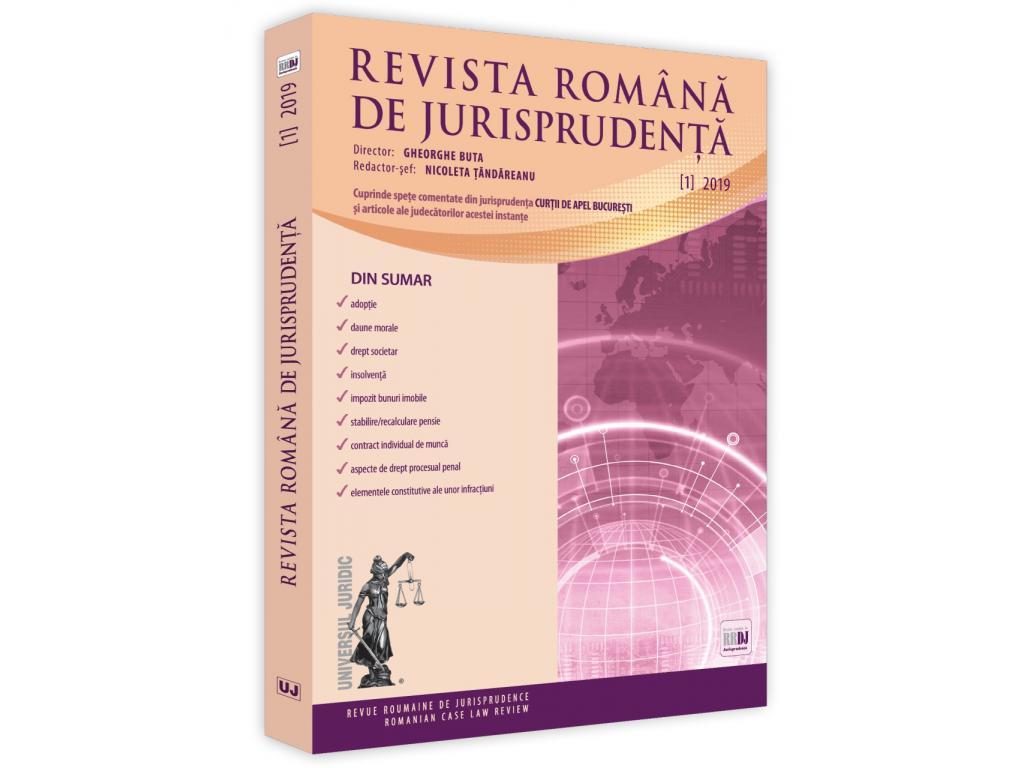International child abduction. The notion of child’s residence. Measures to protect the child after his or her return
DREPT CIVIL ŞI DREPT PROCESUAL CIVIL
Abstract
1. The concept of usual residence represents a familiar notion for the Hague Conference on the civil matters of the international child abduction, as it is also used by the Brussels II Regulation, which encompassed the Convention resulting in the matter, as it should be interpreted, according to the Court of Justice of the European Union in case A. , C-523/07, judgment of 2 April 2009, as meaning that: “According to article 8 paragraph (1) of the Regulation no. 2201/2003 (…) this residence corresponds to the place which expresses a certain integration of the child in a social and family environment. For this purpose, specifically, it should be taken into consideration the duration, frequency, conditions and reasons for the stay in the territory of a Member State and of the family’s move to that State, the child’s citizenship, the schooling place and conditions, the linguistic knowledge, as well as the family and social relationships maintained by the child in the respective State. The national court shall have jurisdiction on establishing the usual residence of the child, considering all the factual circumstances specific to each case separately”. Therefore, the phrase must be understood as a purely factual notion, which differs from the notion of domicile in particular.
2. On the other hand, according to art. 60 letter e) of the Regulation (EC) no. 2201/2003 of 27 November 2003 concerning jurisdiction and the recognition and enforcement of judgments in matrimonial matters and the matters of parental responsibility: “In relations between Member States, this Regulation shall take precedence over the following Conventions in so far as they concern matters governed by this Regulation: (…) the Hague Convention of 25 October 1980 on the Civil Aspects of International Child Abduction”. Therefore, even if art. 13 letter b) of the Hague Convention provides for that: “Notwithstanding the provisions of the preceding Article, the judicial or administrative authority of the requested State is not bound to order the return of the child if the person, institution or other body which opposes its return establishes that there is a grave risk that his or her return would expose the child to physical or psychological harm or otherwise place the child in an intolerable situation”, among the Member States of the European Union, the application of this legal text is severely limited by the provisions of art. 11 paragraph (4) of the Regulation no. 2201/2003: “A court cannot refuse to return a child on the basis of Article 13b of the 1980 Hague Convention if it is established that adequate arrangements have been made to secure the protection of the child after his or her return. ”








